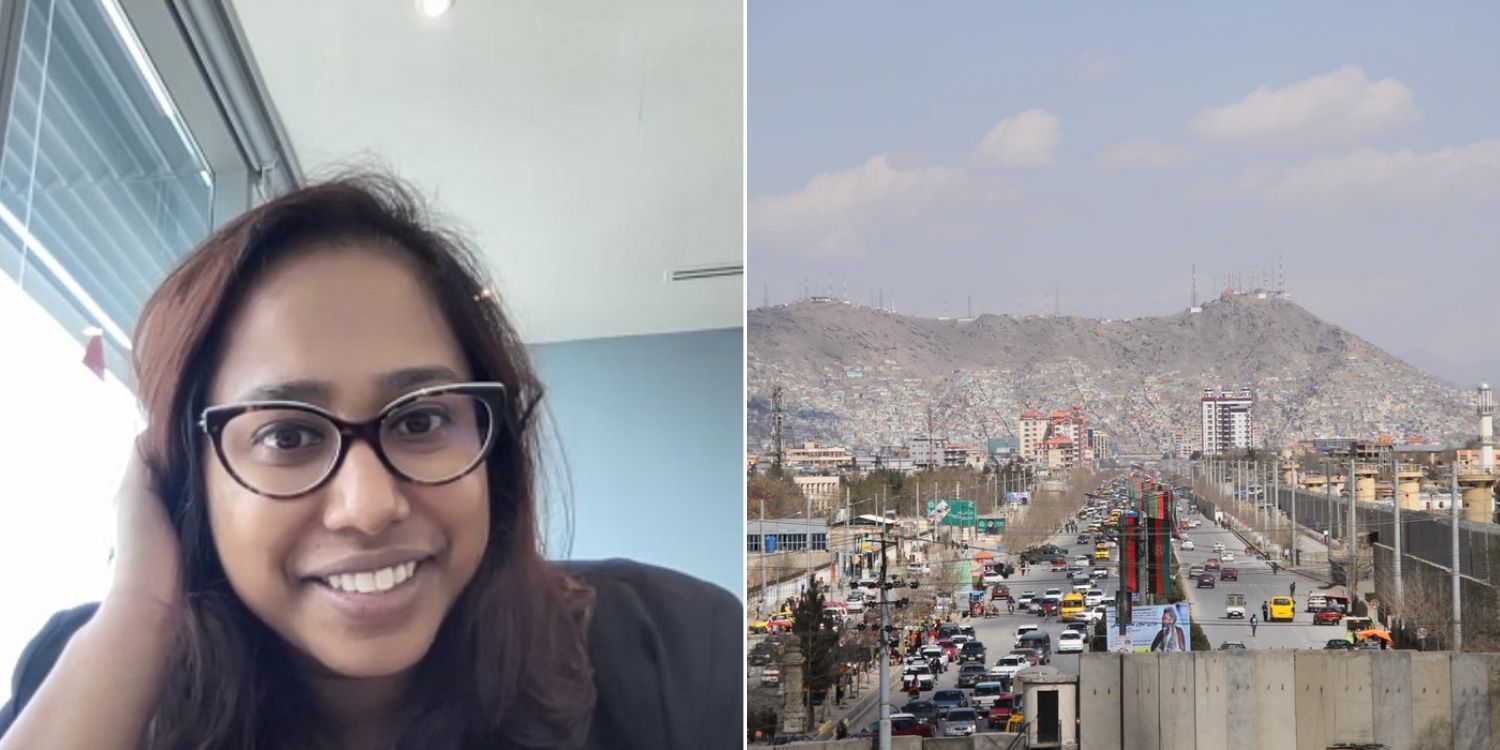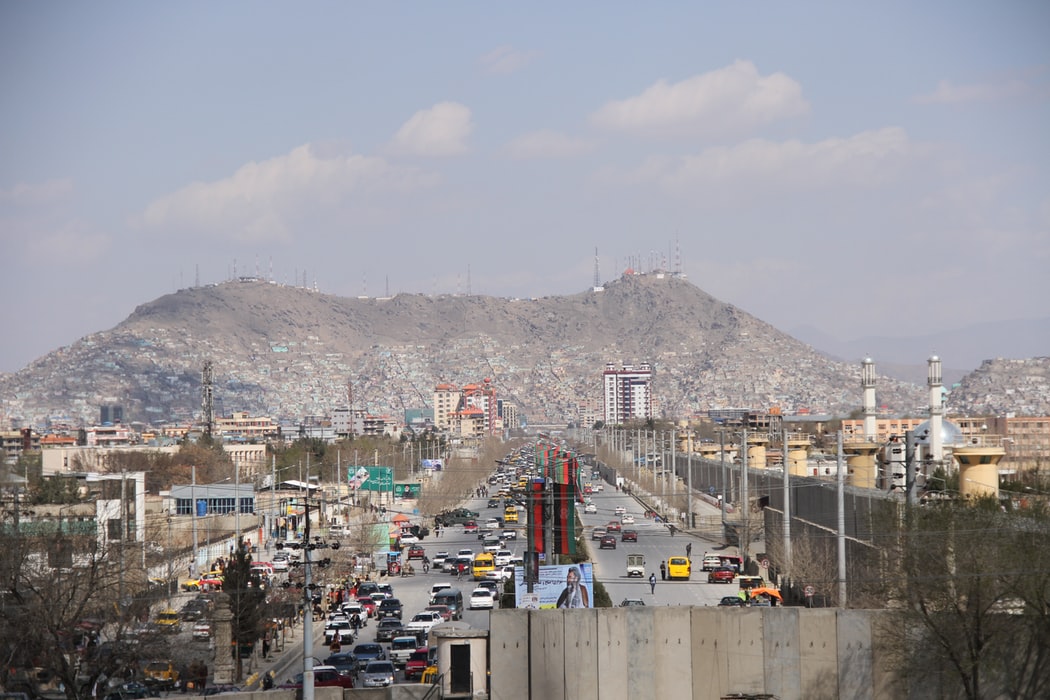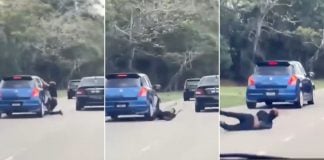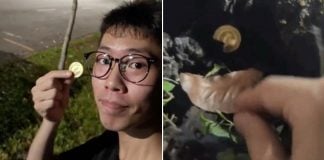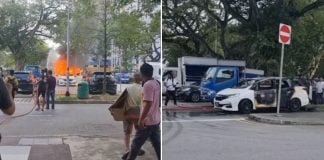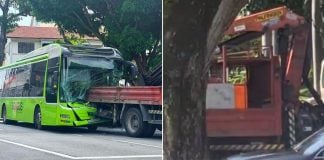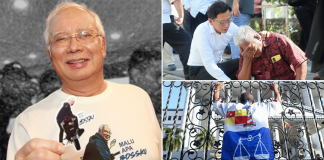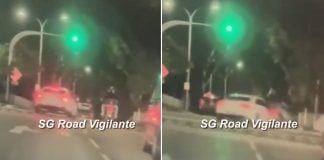Security Expert Shares Afghanistan Experiences & Counter-Terrorism Insights
Jolene Jerard wanted to be 1 of 3 things when she was a kid. A teacher, a lawyer, or an airforce pilot. Now, she’s a security analyst who specialises in counter-terrorism.
Not exactly a conscious career of choice for most young ladies, but we think she’s right where she needs to be.
We speak to the esteemed doctor for her take on what’s going on in Afghanistan, how these events could affect us closer to home, and what we can do to stay vigilant as a community.
Not your typical deskbound security analyst
Dr Jerard – or Jolene, as she prefers to be called – greets us serenely over Zoom in her black-framed glasses, and a signature bubbly laugh.
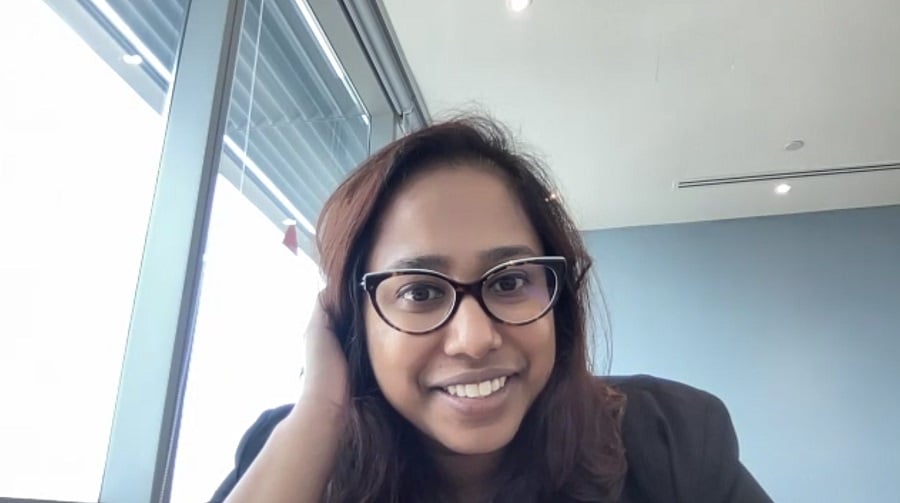
Not what you’d expect when you picture a ‘security analyst’ – think deskbound job, sleek black suit and shades, fingers flying over the keyboard.
Speaking of flying, Jolene shares that her earliest brush with 9/11 began in the most unexpected of ways.
A fateful flight landed her a career in counter-terrorism
While taking her ‘A’ levels, she joined the Youth Flying Club to get a private pilot licence. After learning how to fly sorties in a Piper Warrior – aka a smol plane resembling “a flying taxi” – she decided to take a break.
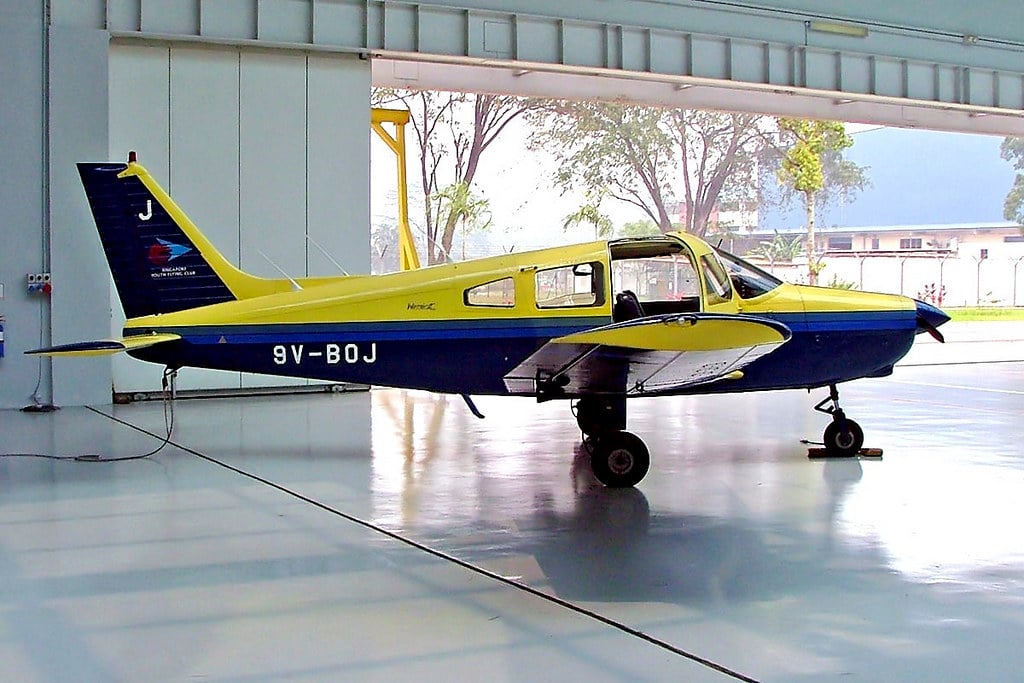
The timing couldn’t have been more uncanny. It was the year 2001, when Singapore had its first rounds of arrests involving the Jemaah Islamiyah (JI), right after the 9/11 attacks.
“When I was training to fly, I didn’t learn how to land. After 9/11, I was probably included on the profile list – people who could take off a plane but didn’t know how to land it.”
Jolene received a fateful phone call from the authorities, hoping to verify her identity.
“When they called me, it was just to check my IC number. If anything, they promised to call me up. In my youth, I was like, okay… alright.”
Only in hindsight did Jolene realise the significance of that particular call.
Something that dawned on me years later, the hijackers – terrorists – they only learned how to take off the plane. They didn’t learn how to land it. It was a suicide mission.
Pausing to take a breath, she delivers a collected assessment of her chilling moment of realisation.
“After this first brush with 9/11, I choose to think that I almost accidentally fell into this path. A career in research, specialising in counter-terrorism.”
And specialise, she did. Her passion is evident, even as she shares how she got into this line of work – academia, that is.
Vanishing skylines from Dubai to Kabul
After she returned to school, she “never left it”. She took a job after graduation at RSIS as a policy analyst.
Within the first 6 months, she answered the call to be based in Afghanistan, Kabul, for research. Initially, the brave researcher even took on solo trips, she chortled.
When asked about a project that defined her time there, Jolene offered a poignant answer. It wasn’t a critical piece of research that made its mark on her — it was an exact moment in time.
“It’s just a few hours apart from Singapore to Dubai to Kabul. The world’s a very small place when you think about it that way.
But when the flight takes off from Dubai, you will see the skyline. Within 4 hours, when you land in another country, the skyline completely vanishes.”
It’s that dawning realisation that it takes generations to build that – but all of it can go away in an instant.
As expected, Afghanistan was no doubt a stranger world for a Singaporean who grew up in an urban city.
Returning to Afghanistan yearly since 2008
Jolene – who also taught at the Rabdan Academy in the UAE – offered us a clear picture of how being based out of Kabul was different from life in Singapore.
It was certainly jarring for me as a civilian. As a Singaporean – when we are walking along the streets – we don’t really see police patrolling the city to that extent.
But when I landed in Kabul, there were literal tanks on the streets.
Undeterred, she returned to Afghanistan every year since 2008. It wasn’t until the pandemic arrived that she put a halt to her trips in the past 2 years.
But why, you may be wondering? F2F interactions with a ‘person of interest’ – or someone from a known terrorist cell – are, in fact, integral to her research.
Staying objective despite close encounters with warlords
Jolene breaks down the method of understanding how to combat radicalisation—it mostly starts with a conversation.
On-ground interviews with fellow researchers aside, she met with incarcerated individuals to understand their thought processes & create best practices for countries to plug the gaps in security systems.
We wonder how she stays objective, given the emotionally charged subject matter. She shares,
When engaging, it’s important to refrain from judgment. I may have read the case file, but I see myself as an analyst first.
Regardless of who or what the situation is, it will nuance the report if your assessment is coloured.
Jolene states this in a matter-of-fact way that could only have come from years of experience.
She’s seen the aftermath of what happened in Marawi, Philippines, and along the borders of Bangladesh in Rohingya camps. And in places like Sulaymaniyah and the upper North areas of Mosul, which was taken over by ISIS eventually.
“You have the watch. We have the time.”
The conversation turns to what’s happening in Afghanistan now. We ask Jolene for her take on how it could carry security implications for us.
“Afghanistan is a country that’s been embattled with war – continuous war – over an inordinate and extended period; an ongoing proxy war.”
Faced with the daunting task of summarising years of history, the Executive Director at Centinel draws our focus to something entirely unexpected.
Following her annual trips to Afghanistan and interactions with people fighting on the ground, she noticed a single repeated refrain.
No matter how many times I went back, they will always say – sometimes jokingly –
“You have the watch. We have the time.”
Jolene translates the analogy further for us,
“You can come, but we will wait lah. We will wait it out. Because this country is ours.”
Locals were aware that foreign forces – aka US troops – would not stay in Afghanistan for long, she explains.
Afghanistan’s story may cause ripples in Southeast Asia
During the 79/89 Afghan-Soviet war, there were fighters from Southeast Asia who had headed to Afghanistan to fight, Jolene narrates.
That historical memory and “sense of closeness” is what these individuals carried back when they returned—in turn, injecting fervour into the movements in SEA.
This includes groups like Jemaah Islamiyah, who’ve had more than “a decade of violence here in SEA”. In particular, the emergence of Al-Qaeda aligned groups in our region.
“We have seen that manifest in SEA as well. For instance, those who sent congratulatory notes to the Taliban saying that they are “brothers-in-arms”.
JAS (Jamaah Anshorul Syariat), led by Abu Bakar Ba’asyir’s son, was one of the first groups to issue such a note.”
Though there aren’t any imminent threats, the larger question remains,
“What’s the impact for us, moving forward in a security landscape amidst an age of uncertainty?”
The tougher battle is how to manage what she describes as “a deluge, or tsunami of information coming through”.
Her job as an analyst is simply to make sense of the chaos and navigate the complex matrix that follows. Due to the evolving modus operandi of these decentralised actors, the expanded role the community plays is more crucial than ever.
Singapore’s subtle efforts in counter-terrorism
Jolene brings up recent cases in Singapore involving ISD’s detentions of youth or individuals who were in possession of bladed weapons or issued online threats.
These plots were directed against 2 different communities, and planning was at an advanced stage. But they were foiled nonetheless.
She doesn’t hesitate to give us her frank assessment of our nation’s steadfast efforts,
“In terms of domestic counter-terrorism efforts, ISD, our authorities have been doing an excellent job in trying to mitigate and prevent terrorist attacks from happening.
The ability to have preventive detention prior to the attack taking place is extremely commendable.”
As an academic working in the circles, she’s privy to what’s happening behind the scenes. Things that we – as common civilians – don’t get to see.
“It’s like a football match. You only see the great goals or the great misses. Everything in between is something that’s missed completely.”
That’s why, the good work of our security services – I will always underscore – due to the volatility of our current situation.
Understandably, the work is far from over. Community vigilance takes a team effort – to ensure everyone’s united towards the common goal of building a trusted network to detect threats.
The WHEN in “Not if, but when”
Jolene mentions public messaging campaigns like SGSecure, which prevent us from sinking into a realm of complacency amidst a volatile global environment.
As a community, we must come together as a network. That will blunt the opportunity to strike.
We ask for her thoughts on the oft-repeated “Not if, but when” notion.
Armed with a slight chuckle, she emphasises that although it may sound generic, it does hold personal meaning for her.
It’s a recognition of our reality today. That flight from Dubai to Kabul. A reminder that everything can change in an instant. A reminder that we shouldn’t take ‘WHEN’ it happens for granted.
“So how do we prevent the ‘WHEN’?”, we ask Jolene. We’re at the 40-minute mark of our Zoom call, and decide to take a quick breather.
Blunting the ‘opportunity’ for a terror attack
Jolene pauses for a quick sip of water, adjusting her glasses slightly, and then summarises succinctly what analysts look for to detect a terrorist attack.
3 things—intention, capability, and opportunity. We’ve created a rabz diagram to illustrate this.
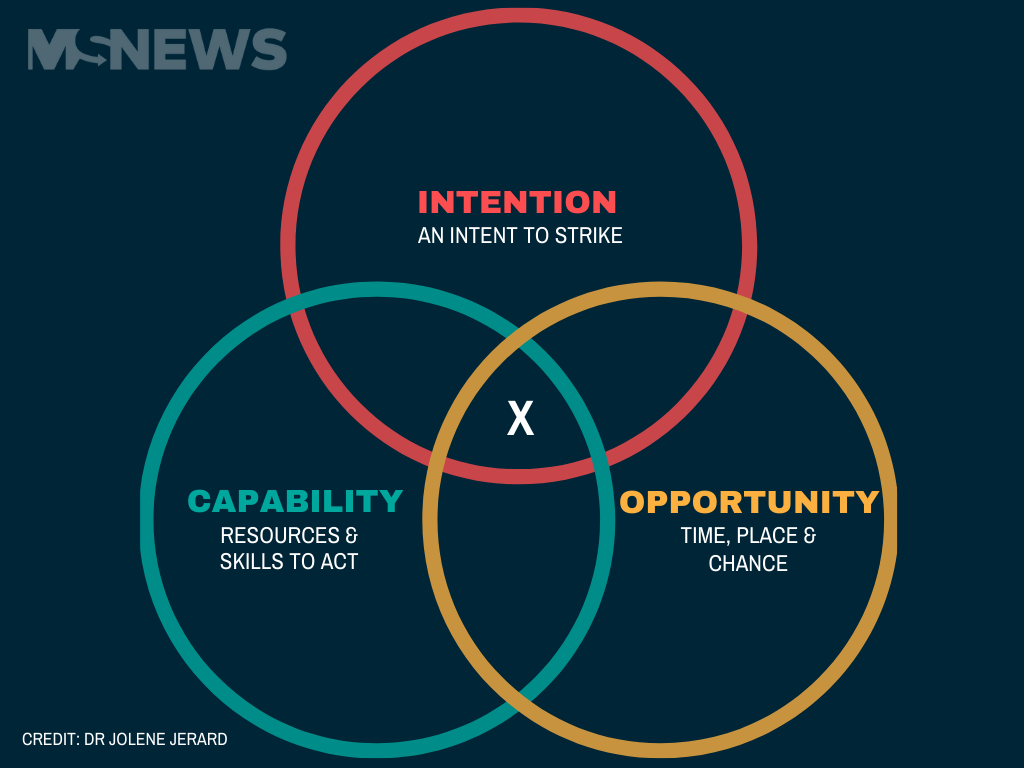
In Jolene’s words,
“Think of them as 3 circles. When the three meet, the X in the middle—that’s the terrorist attack.
When groups have made known their intent to strike—that’s intention. Groups also have varying levels of capability. It could be a network or lone wolf actors—this falls under capability.
Opportunity refers to the chance to attack.”
That’s where the role of security officers and homeland authorities come in. Curiously, this is also exactly where the community plays a part.
She calls it “blunt(ing) the opportunity to strike”.
Once blunted, those with extreme intentions now have limited capabilities and opportunities to act, and are unable to translate their thoughts into an attack. Instead, it may manifest online, in discourse, a narrative, or perhaps incitement.
The lesser-known reformative side of justice
That said, it’s not easy to come together to ensure that when the “WHEN” happens, we’re sufficiently prepared to make tough calls.
Jolene leans in close to discuss the idea of the reformative side of justice, that often involves rehabilitation, counselling and on a case-by-case basis, reintegration.
“So for people who are worried about paotoh-ing your friend, what’s not spoken about enough is how you may be helping someone out instead.”
She shares that instead of viewing it as telling on a loved one, we can also view it as an opportunity to extend help to someone in need.
A teacher, a lawyer & a pilot all rolled into one
Our time in the interview is about to draw to a close. But one last mystery remains.
What does it take for one to pursue a career in a challenging job in the realm of national security or counter-terrorism?
Jolene takes the question like a seasoned pro. This time, in a rare exception, allowing the weight of her experiences to colour her answer.
She muses about it for a while, before saying,
Curiosity. Remembering these issues can hit close to home – on a primordial level – involving faith, ethnicity, the complexity of humanity.
So, maintaining objectivity amidst everything you may see.
Finally, she takes us back to her teenage years with a wry smile.
“Many, many moons and aeons after – it mattered to me for the path I chose, not only to make a difference but to be the difference in the team I was playing for.”
Before we end the call, she jokes off the record that she hadn’t quite managed to accomplish any of her childhood aspirations as a teacher, pilot or a lawyer.
But we’ve definitely observed hints of every aspect of those callings, in our short Tuesday pre-lunch interview.
A pilot, in terms of her drive in navigating uncharted – sometimes dangerous – territory. A lawyer, in her humane efforts to empathise with and defend the voiceless. And a teacher, for all that she’s taught us today.
This article is part of MS News’ 9/11 commemorative project to reflect on how our lives have changed since that fateful day, 2 decades ago.
Have news you must share? Get in touch with us via email at news@mustsharenews.com.
Featured image by MS News and adapted from Farid Ershad on Unsplash, for illustration purposes.
